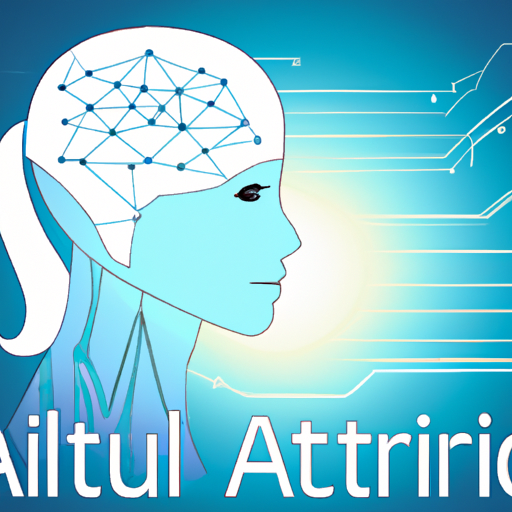-
Table of Contents
The Impact of Artificial Intelligence on Job Security
The advent of artificial intelligence (AI) has had a profound impact on job security. AI is a form of technology that enables machines to think and act like humans, and it has been used in a variety of industries to automate processes and increase efficiency. As AI continues to evolve, it is becoming increasingly capable of performing tasks that were once thought to be the exclusive domain of humans. This has led to fears that AI could replace human labor, leading to job losses and a decrease in job security.
The potential for AI to replace human labor is real, and it is already being seen in certain industries. For example, AI-driven automation has been used to replace human labor in manufacturing, customer service, and other areas. This has led to job losses in those industries, as well as a decrease in job security for those who remain employed.
However, it is important to note that AI is not necessarily a threat to job security. In fact, AI can be used to create new jobs and increase job security. For example, AI can be used to automate mundane tasks, freeing up employees to focus on more complex and rewarding tasks. This can lead to increased job satisfaction and job security.
In addition, AI can be used to improve the accuracy and efficiency of existing jobs. This can lead to increased job security, as employers are more likely to retain employees who are able to perform their jobs more effectively.
Overall, the impact of AI on job security is complex. While it is true that AI can lead to job losses and a decrease in job security, it can also be used to create new jobs and increase job security. It is important for employers to understand the potential of AI and use it in a way that benefits both their employees and their business.
Exploring the Ethical Implications of Artificial Intelligence
The development of artificial intelligence (AI) has been a major breakthrough in the field of technology, and its potential applications are vast. However, the ethical implications of AI are often overlooked. This article will explore the ethical implications of AI and the potential consequences of its use.
First, it is important to consider the potential for AI to be used for unethical purposes. AI can be used to manipulate data, create false information, and even manipulate people’s behavior. This could lead to a situation where AI is used to manipulate people’s decisions and opinions, or even to control their behavior. This could have serious implications for the autonomy of individuals and the integrity of the democratic process.
Second, AI can be used to automate processes that are traditionally done by humans. This could lead to a situation where AI is used to replace human labor, leading to job losses and a decrease in wages. This could have a significant impact on the economy and could lead to increased inequality.
Third, AI can be used to create autonomous systems that are capable of making decisions without human input. This could lead to a situation where AI is used to make decisions that could have serious implications for people’s lives. For example, AI could be used to make decisions about medical treatments or to control autonomous weapons systems. This could lead to a situation where AI is used to make decisions that could have serious implications for people’s lives without any human input or oversight.
Finally, AI can be used to create systems that are capable of learning and adapting. This could lead to a situation where AI is used to create systems that are capable of making decisions that are not in the best interests of humans. This could lead to a situation where AI is used to make decisions that could have serious implications for people’s lives without any human input or oversight.
In conclusion, the ethical implications of AI are complex and far-reaching. It is important to consider the potential implications of AI before it is used, and to ensure that it is used responsibly and ethically. It is also important to ensure that AI is used in a way that respects the autonomy of individuals and the integrity of the democratic process.
The Benefits and Drawbacks of Automation with Artificial Intelligence
Automation with Artificial Intelligence (AI) has become increasingly popular in recent years, as it offers a range of benefits and drawbacks. AI is a form of technology that enables machines to perform tasks that would normally require human intelligence. This technology has been used in a variety of industries, from manufacturing to healthcare, and has been found to be beneficial in many ways.
The primary benefit of automation with AI is increased efficiency. AI-powered machines can complete tasks faster and more accurately than humans, allowing businesses to save time and money. Additionally, AI can be used to automate mundane tasks, freeing up employees to focus on more important tasks. This can lead to increased productivity and improved customer service.
Another benefit of automation with AI is improved accuracy. AI-powered machines are able to detect patterns and anomalies that humans may miss, leading to more accurate results. This can be especially beneficial in industries such as healthcare, where accuracy is essential.
However, there are also some drawbacks to automation with AI. One of the most significant drawbacks is the potential for job loss. As AI-powered machines become more efficient, they may replace human workers in certain industries. This could lead to a decrease in employment opportunities and an increase in unemployment. Additionally, AI-powered machines may not be able to handle complex tasks, which could limit their usefulness in certain industries.
Finally, AI-powered machines may be vulnerable to cyberattacks. As AI-powered machines become more prevalent, they may become targets for malicious actors. This could lead to data breaches and other security issues, which could have serious consequences for businesses.
In conclusion, automation with AI offers a range of benefits and drawbacks. While it can increase efficiency and accuracy, it may also lead to job loss and security issues. Businesses should carefully consider the potential risks and rewards before implementing AI-powered automation.
The Potential of Artificial Intelligence to Revolutionize Healthcare
The potential of artificial intelligence (AI) to revolutionize healthcare is immense. AI has the potential to revolutionize healthcare in a number of ways, from improving patient care to streamlining administrative processes.
AI can be used to improve patient care by providing more accurate diagnoses and treatments. AI-powered systems can analyze large amounts of data quickly and accurately, allowing doctors to make more informed decisions about patient care. AI can also be used to monitor patients’ vital signs and alert doctors to any changes that may indicate a health issue. AI can also be used to provide personalized treatments based on a patient’s individual needs.
AI can also be used to streamline administrative processes in healthcare. AI-powered systems can automate mundane tasks such as scheduling appointments, filing paperwork, and managing patient records. This can free up time for healthcare professionals to focus on providing better patient care. AI can also be used to analyze large amounts of data to identify trends and patterns that can help healthcare providers make better decisions.
AI can also be used to improve access to healthcare. AI-powered systems can be used to provide remote consultations and diagnoses, allowing patients to access healthcare from anywhere in the world. AI can also be used to provide personalized health advice and recommendations based on a patient’s individual needs.
The potential of AI to revolutionize healthcare is immense. AI-powered systems can improve patient care, streamline administrative processes, and improve access to healthcare. As AI technology continues to develop, it is likely that AI will become an increasingly important part of healthcare in the future.



